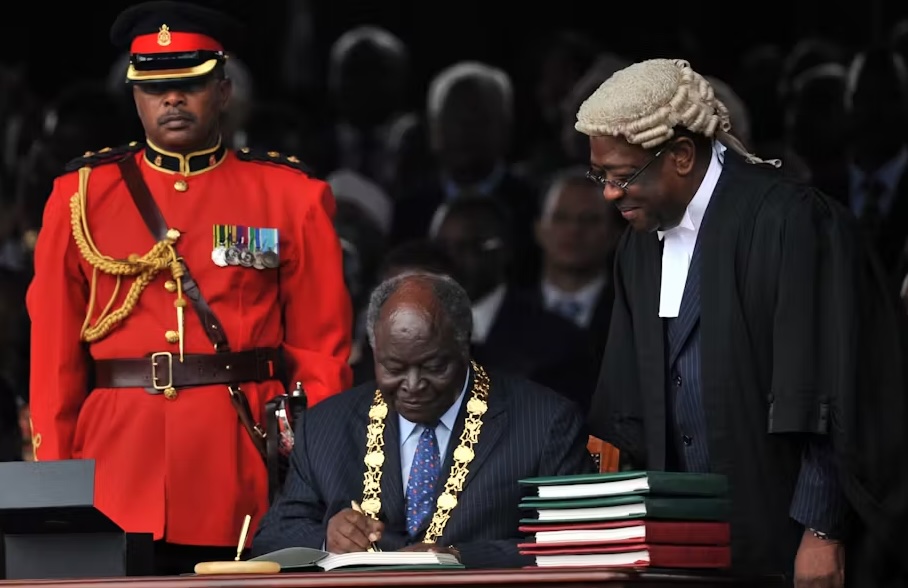
Reflecting on 15 Years of Constitutional Electoral Reforms in Kenya
Reflecting on 15 Years of Constitutional Electoral Reforms in Kenya
Kenyans affirmed a new social contract—one that enshrined human dignity, accountability, democracy and the devolution of power fifteen years ago. The 2010 Constitution broke the cycle of over-centralized authority and impunity. It anchored an expanded Bill of Rights, created two levels of government, and set in motion structural checks and balances through independent commissions, a reformed judiciary and a strengthened Parliament. Since its promulgation on 27th August 2010, the Constitution has reshaped Kenya’s governance, deepened citizen engagement and elevated respect for civil liberties. Grassroots participation now drives county development plans. The media and digital platforms operate more freely, enabling robust public discourse. Transparency in public finance has improved through new oversight mechanisms, while citizens can lodge rights-based petitions and challenge unconstitutional actions in court. Yet the promise of the Constitution depends not only on its text, but on the full enactment of laws that breathe life into its provisions. The Fifth Schedule set clear deadlines for consequential legislation. As we mark Katiba Day 2025, it is time to take stock of enacted milestones and spotlight the statutes yet to be delivered.
Accomplishments and Legislative Gaps in the Electoral Sector
One of the most transformative chapters of the 2010 Constitution is Chapter Seven, which redefined Kenya’s electoral framework under the banner of “Representation of the People.” To give effect to its provisions, Article 261(1), read together with the Fifth Schedule, required Parliament to enact all necessary legislation within one year of the Constitution’s promulgation. This directive was not merely procedural—it was foundational to ensuring that democratic representation, electoral integrity, and institutional independence were anchored in law.
In response, Parliament moved swiftly in 2011 to pass a suite of electoral laws. These included the Elections Act, which consolidated electoral procedures and dispute resolution mechanisms; the Political Parties Act, which regulated party registration, funding, and conduct; and the Independent Electoral and Boundaries Commission (IEBC) Act, which established the IEBC as a constitutional commission with powers over voter registration, boundary delimitation, and election management. Two years later, the Election Campaign Financing Act was enacted to regulate political spending and promote transparency in campaign financing.
A critical addition to this framework came in 2016 with the enactment of the Election Offences Act. This statute codified a wide range of electoral offences—bribery, voter intimidation, personation, misuse of public resources, and unlawful expenditure—while also criminalizing misconduct by election officials and candidates. It empowered courts to disqualify convicted individuals from contesting future elections and provided for the appointment of special magistrates to expedite electoral justice. The Act has since become a cornerstone of Kenya’s electoral integrity regime, reinforcing the constitutional principles under Articles 81 and 86.
Despite this early momentum, Kenya has yet to complete the legislative framework envisioned under Chapter Seven. Several critical enactments remain pending or unimplemented. The Referendum Bill, first introduced in 2020, is still awaiting passage. Without it, the procedural clarity required for constitutional amendments via popular initiative under Articles 255–257 remains elusive. Similarly, although the Election Campaign Financing Act was enacted in 2013, it has never been operationalized. The 12th Parliament postponed its commencement date, leaving campaign finance largely unregulated and vulnerable to opaque funding practices. Perhaps most significantly, the Two-Thirds Gender Bill—intended to give legislative effect to Article 27(8) and Article 81(b)—remains stalled in the National Assembly. This bill seeks to ensure that no more than two-thirds of members in elective and appointive bodies are of the same gender, a principle that has been repeatedly affirmed by the courts but remains unenforced due to legislative inaction. Further, there is also need for the reenactment of the Elections Act specifically the provisions for recall of Members of Parliament after said provisions were declared discriminatory by the High Court in 2017.
Recognizing the urgency of completing this legislative agenda, Parliament—through the Departmental Committee on Justice and Legal Affairs (JLAC)—has partnered with the IEBC and civil society organizations such as the Electoral Law and Governance Institute for Africa (ELGIA). These stakeholders have convened multisectoral consultative forums, reviewed existing gaps, and developed draft legislation aimed at closing the loop on electoral law reform. These bills have since been forwarded to Parliament for deliberation and enactment. As Kenya marks fifteen years of constitutional governance, the electoral and governance sector stands as both a testament to progress and a reminder of unfinished business. Completing the legislative framework under Chapter Seven is not simply a constitutional obligation, it is a democratic imperative that speaks to the heart of representation, accountability, and equity.

Electoral Law and Governance Institute for Africa (ELGIA),
is a Continental Organisation working to strengthen
and consolidate constitutional democracy,good governance,
human rights,institutional strengthening of
parliament and electoral processes in Africa.
Copyright @ 2025 . ELGIA.
